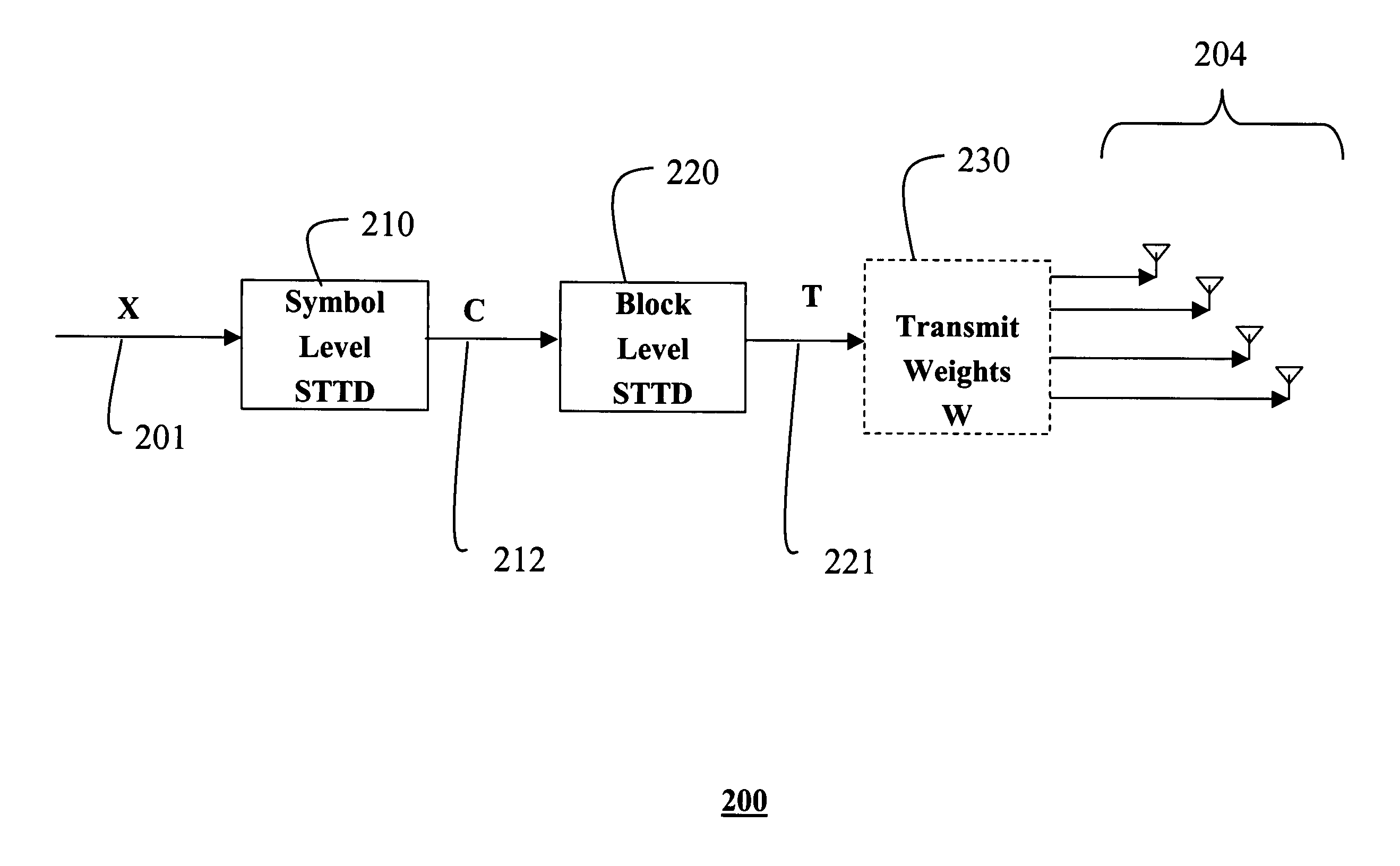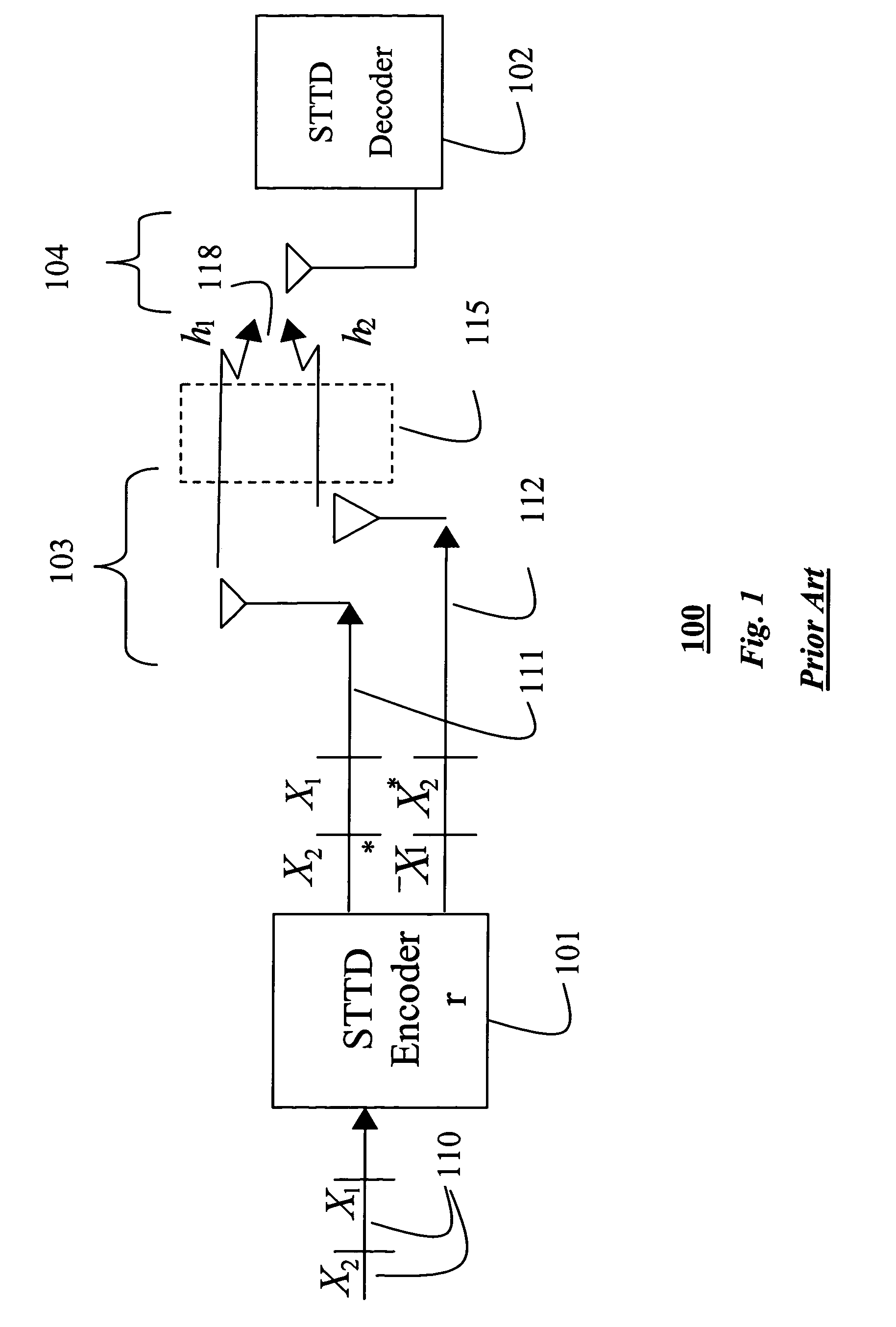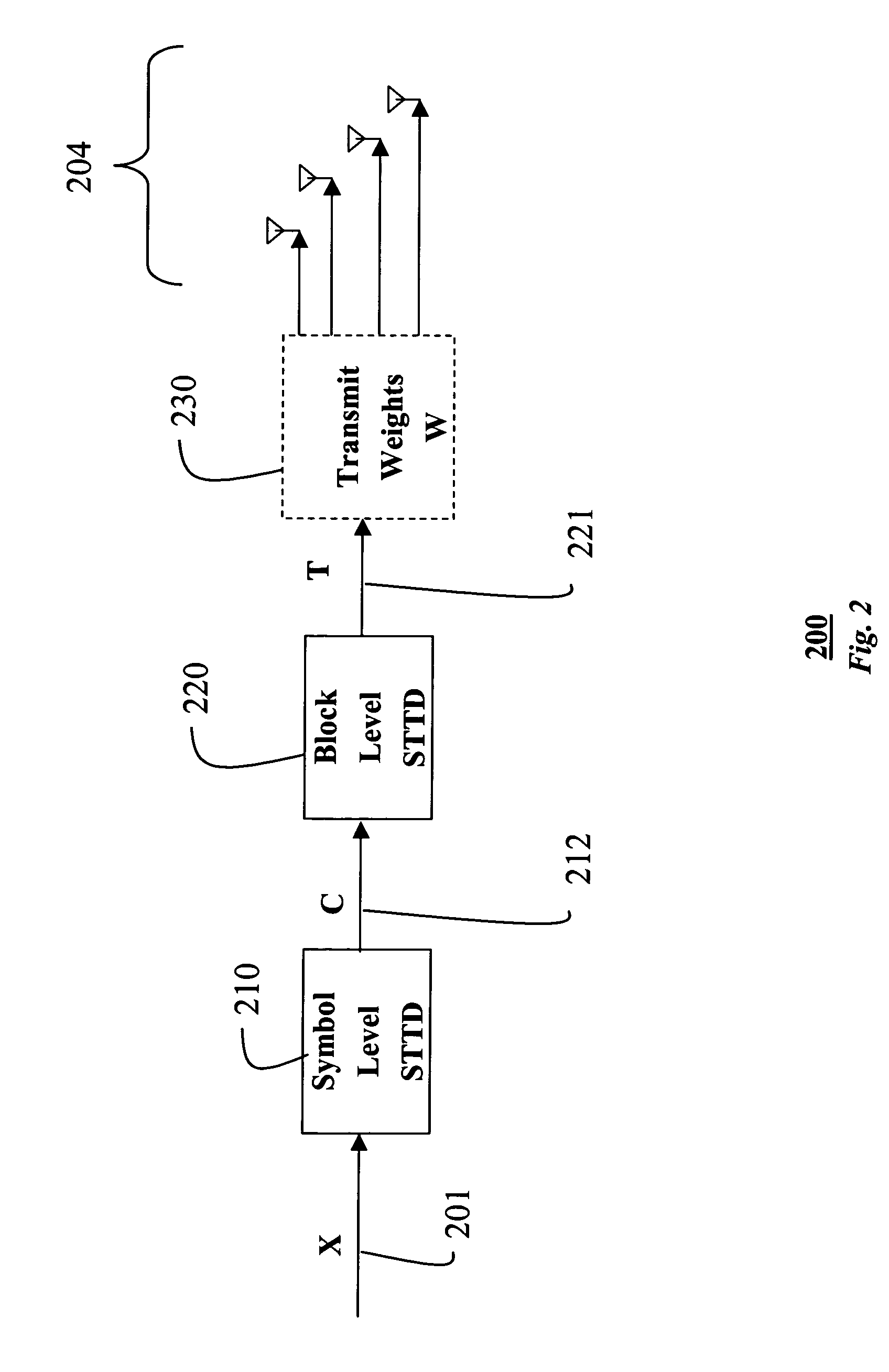Transmit diversity gain for wireless communications networks
a wireless communication network and diversity gain technology, applied in multiplex communication, modulation, electromagnetic wave modulation, etc., can solve the problem of transmitter to two transmit antennas, and achieve the effect of increasing transmit diversity gain
- Summary
- Abstract
- Description
- Claims
- Application Information
AI Technical Summary
Benefits of technology
Problems solved by technology
Method used
Image
Examples
Embodiment Construction
[0020]As shown in FIG. 2, the invention provides a transmitter 200 with 2N transmit antennas 201, where N is an integer value greater than one. This is an extension of the prior art STTD transmitter with two antennas, i.e. N equals one. For the example transmitter in FIG. 2, N equals two, so there are four transmit antennas 204.
[0021]In order to be backward compatible with the prior art STTD system of FIG. 1, a transmit signal is generated as a stream of pairs of symbols. Each pair of symbols is denoted generally by X 110. Each pair of symbols is first encoded by a symbol level STTD encoder 210 as a matrix C 212 with two rows.
[0022]According to the invention, a pair of consecutive symbol pairs (X1, X2) and (X3, X4) encode 210 to a pair of matrices C1 and C2
[0023]C1=[X1X2X2*-X1*]andC2=[X3X4X4*-X3*].(2)
[0024]Next, a 4×4 matrix of transmit symbols T 221 are generated for the four antennas 204 from each pair of matrices C1 and C2 by a block level encoder 220. That is, each matrix C...
PUM
 Login to View More
Login to View More Abstract
Description
Claims
Application Information
 Login to View More
Login to View More - R&D
- Intellectual Property
- Life Sciences
- Materials
- Tech Scout
- Unparalleled Data Quality
- Higher Quality Content
- 60% Fewer Hallucinations
Browse by: Latest US Patents, China's latest patents, Technical Efficacy Thesaurus, Application Domain, Technology Topic, Popular Technical Reports.
© 2025 PatSnap. All rights reserved.Legal|Privacy policy|Modern Slavery Act Transparency Statement|Sitemap|About US| Contact US: help@patsnap.com



